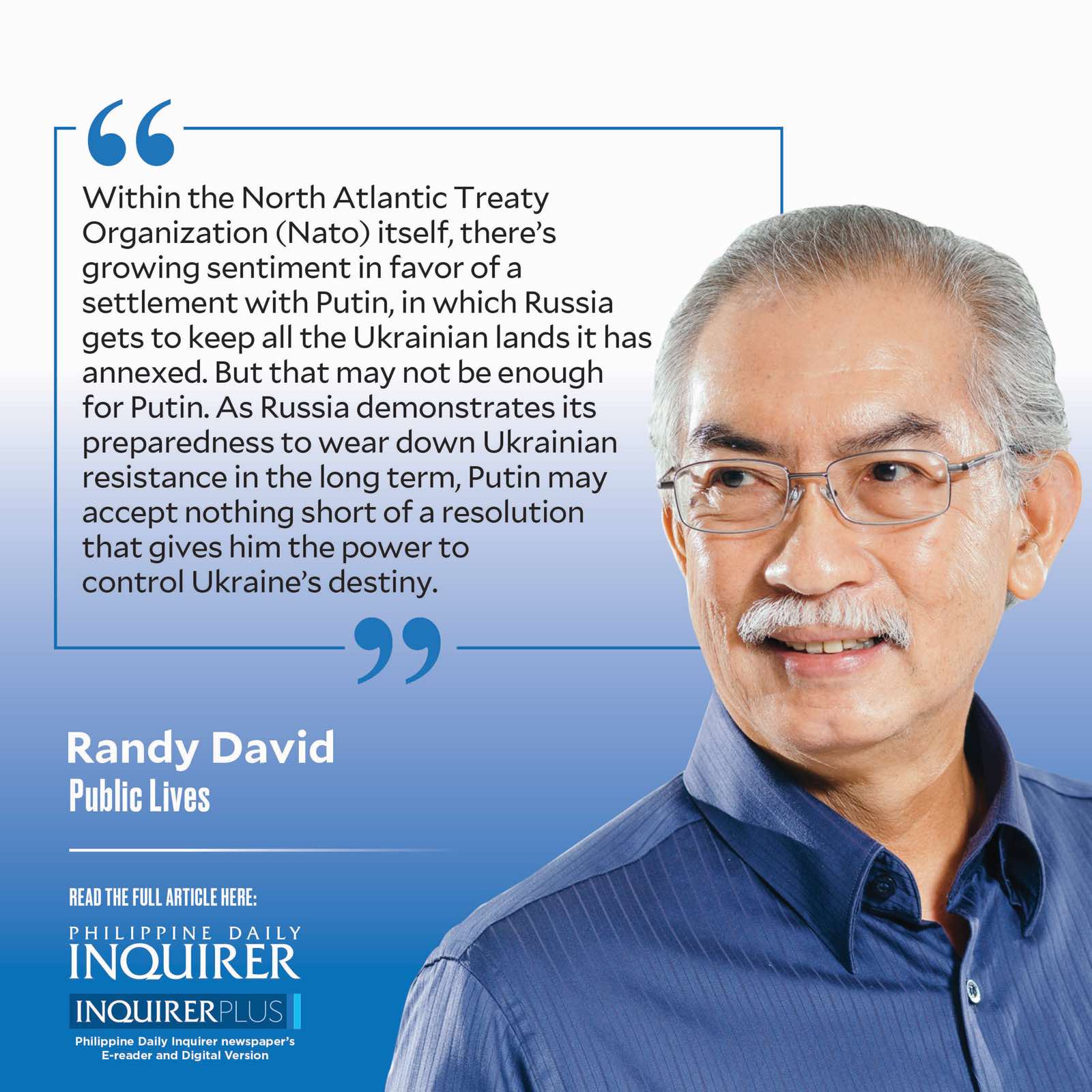Russia under Putin

Russian President Vladimir Putin served as a KGB foreign intelligence officer for 16 years before he was appointed prime minister in August 1999. Only a few months later, he took over the presidency after the resignation of Boris Yeltsin. Thus began his unprecedented rise as Russia’s undisputed leader. At 71, Putin is today Russia’s longest serving leader since Joseph Stalin.
In April 2021, the constitution was amended to allow Putin to run for reelection two more times, without needing to skip one term and resort to the charade of sliding to prime minister. This coming March 17, he will run again virtually unchallenged for another term. Alexei Navalny, Russia’s most prominent opposition leader, recently died in an Arctic prison under mysterious circumstances. If he wants to, Putin can be president for another 12 years.
After Russia invaded Ukraine two years ago, the West thought that this foolish adventure might cost Putin his eventual downfall. Led by the United States and the European Union, stiff financial and trade sanctions intended to cripple the Russian economy were quickly imposed. The assets abroad of rapacious Russian oligarchs who have benefited from the Putin regime were promptly seized and frozen. The sanctions were expected to plunge the country into an economic crisis that would trigger domestic opposition to the war and mass mobilizations against Putin.
Nothing of the sort happened. The increase in Russian arms production sparked an economic boom instead. If there was any danger at all, it would be from an overheated economy. The Russian central bank had apparently prepared well for this moment by reducing the country’s foreign debt and boosting its currency reserves, taking advantage of the rise in the price of oil, Russia’s principal source of foreign earnings.
An essay titled “How Vladimir Putin Controls the Russians,” that appeared in the Feb. 26, 2024 issue of the German publication Spiegel International explains Russian economic resilience thus: “Since he first took office as president in 2000, Putin has entrusted the management of the Russian economy to the experts … Russia’s economic policy has therefore remained non-ideological and pragmatic in recent years. ‘Putin trusts his economic professionals and doesn’t interfere in the operational business,’ says Alexandra Prokopenko.” (“Prokopenko worked as a consultant at the central bank in Moscow until March 2022, when she left her post and the country.”)
A mixture of fear and indifference has clearly blended well with economic contentment. Many young Russians left for abroad to evade conscription into the army at the beginning of the invasion, but nothing much is heard about the fate of Russian conscripts sent to fight in Ukraine. While there has been little support for Putin’s “special operation” to “de-Nazify” Ukraine, neither has there been any sustained mass movement opposing it within Russia itself. Many ordinary Russians have begun to regard the war as something distant from their daily concerns, though they may be quietly against it.
On the other hand, the nearly global solidarity with and support for the Ukrainian people’s heroic stand against Russian aggression, which was strongest at the beginning of the invasion, seems to be waning. Donor fatigue has set in. Even as Kyiv’s fighters are rapidly running out of ammunition and supplies, military aid from its Western allies has been reduced to trickles.
Nowhere is this more evident than in the United States itself, where a $60-billion package for Ukraine is being held up in the US Congress. Donald Trump, the likely Republican nominee for the presidency, and who could be US president for the second time, is anchoring his claim to the nation’s top position on a call to compel America’s European allies to spend for their own defense.
Within the North Atlantic Treaty Organization (Nato) itself, there’s growing sentiment in favor of a settlement with Putin, in which Russia gets to keep all the Ukrainian lands it has annexed. But that may not be enough for Putin. As Russia demonstrates its preparedness to wear down Ukrainian resistance in the long term, Putin may accept nothing short of a resolution that gives him the power to control Ukraine’s destiny. And that includes being able to install a puppet government in Kyiv.
Such options are not acceptable to the major EU countries that have kept faith with Ukrainian resistance. If the US won’t fund Ukraine’s desperate effort to defend itself, leaders attending a recent G-7 gathering said they would use sequestered Russian assets worth about $397-billion to buy arms for Ukraine. At another meeting hosted by French President Emmanuel Macron early this week, the possibility of sending not just arms but Western troops to the beleaguered country was discussed. The French leader later declared that while “there’s no consensus today to send… troops on the ground, nothing can be ruled out.” None of these threats seem to rattle Putin.
In the meantime, as in Gaza, the rest of the world is reduced to watching, while an entire people is subjected to relentless bombardment by an aggressor country.
—————–
public.lives@gmail.com




















